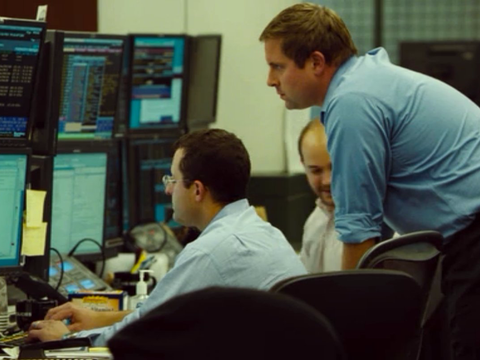However, in both call and put option contracts, the buyer chooses to settle all the contracts on or before the expiry period. Options contracts provide the right but not the commitment to buy or sell an underlying instrument. Option buyers have the opportunity for unlimited profits, but limit their loss to the premium they pay to option writers. On the other hand, option writers have the scope for unlimited losses but a limited gain in the premium they receive.
What is the need for a derivatives market?
The main purpose of derivatives is for reducing and hedging risk
Let’s take a look at why these participants trade in derivatives and how their motives are driven by their risk profiles. Derivatives are not only highly risky, they are also a necessity to investors to reduce risk in a volatile market. It is important to have extremely good knowledge about the derivatives to trade in the derivatives market to ensure less risk and high profit. As derivatives are leveraged instruments it can cut both ways when it comes to profit or loss and therefore a lot of research and understanding is necessary in this market. Trading in the derivatives markets includes low transaction cost as compared to other securities like shares or bonds.
Derivatives include swaps, futures contracts, options, and forward contracts. Derivatives refers to financial contracts drawn between two or more parties on an underlying asset. Typically, underlying assets in derivatives are securities, currencies, indexes, and commodities. The value of financial derivatives is dependent on the underlying asset.
Derivatives can provide investors with a way to stabilize their portfolios, protect themselves from market volatility, and increase their profits. In addition, derivatives can help companies hedge Interpersonal Communication Skills against potential risks and improve their overall financial stability. The facilities on the Website are not intended to provide any legal, tax or financial or securities related advice.
Swaps
This Website is controlled and operated from India and there is no representation that the Materials/information are appropriate or will be available for use in other locations. If you use this Website from outside the India, you are entirely responsible for compliance with all applicable local laws. There is no warranty or representation that a user in one region may obtain the facilities of this website in another region. Immediately of any unauthorized use or access of your password or Account, or any other breach of security.
If the function is represented using y, then its derivatives of first order and second order are respectively denoted as y’ and y’’. A health insurance policy provides financial protection to the policyholder against planned or unplanned medical expenditures. However, merely having a health insurance policy doesn’t mean that you cannot face any hassle during an adversity.
- Futures are financial contracts that are fundamentally similar to forwards but the major difference is that features can be traded on exchanges and therefore are standardised and regulated.
- The credit exposure keeps on increasing since profit or loss is realized only at the time of settlement.
- The prices of these financial contracts remain dependent upon the fluctuation of the values of underlying assets.
- The information is dependent on various assumptions, individual preferences and other factors and thus, results or analyses cannot be construed to be entirely accurate and may not be suitable for all categories of users.
Options are contracts that give the buyer the right to sell or buy an asset at a certain price on the expiration date of the contract or before that. The crucial thing here is that the buyer is under no obligation to trade the security. If the buyer does trade, then it is called exercising the option.
A swap is a derivative contract made between two parties to exchange cash flows in the future. Interest rate swaps and currency swaps are the most popular swap contracts, which are traded over the counters between financial institutions. The futures contract, as the name suggests, deals with an agreement between two parties for the buying and selling of a particular asset at a future date through a standardised, exchange-regulated process. The interested parties also decide upon the pricing of the commodity .
Forwards
Stock market rules require you to constantly maintain your margin amount. This means, you cannot withdraw this amount from your trading account at any point in time until the trade is settled. Also remember that the margin amount changes as the price of the underlying stock rises or falls. However, remember that the strategies need to differ from that of the stock market. For example, you may wish you buy stocks that are likely to rise in the future. In the derivatives market, this would need you to enter into a sell transaction.
However, the parties are under no legal obligation to keep their part of the bargain i.e. they might or might not decide to sell or buy the security at the predetermined time. It is literally an option given to reduce risk in the future if there is a high volatility in the market. There are two major ways of derivatives trading – over the counter derivatives and exchange-traded derivatives. The underlying asset’s value keeps changing according to market conditions.
These links are provided only as a convenience, in order to help you find relevant websites, facilities and/or products that may be of interest to you, quickly and easily. It is your responsibility to decide whether any facilities and/or products available through any of these websites are suitable for your purposes. You shall not copy , distribute , download, display, perform, reproduce, distribute, modify, edit, alter, enhance, broadcast or tamper with in any way or otherwise use any Materials contained in the Website. These restrictions apply in relation to all or part of the Materials on the Website; copy and distribute this information on any other server or modify or re-use text or graphics on this system or another system.
What is the derivative formula?
Arbitrageurs – Operators who operate in the different markets simultaneously, in pursuit of profit and eliminate mis-pricing. The markets for derivatives is different in terms of the working system and risk. You can also have the option to trade in some features of individual stocks and their options. Through National stocks Exchange , Bombay Stocks Exchange in stocks. Similarly, if your interest is to trade in commodities, MCX and NCDEX are there.
What are financial derivatives example?
Financial derivatives include various options, warrants, forward contracts, futures and currency and interest rate swaps.
Today, derivatives are widely used in both commodity and security markets. The term ‘derivative’ was first used in the early 18th century to describe a financial instrument that allowed two traders to offset their risks. Derivatives have been increasingly used in India as a way to improve both financial stability and growth. For example, banks use derivative to reduce their exposure to risky assets and hedge against potential losses. In addition, derivatives have been used by companies to manage risk and improve their overall financial health. Information published on the Website may contain references or cross references to products, programs and facilities offered by ABC Companies/third parties that are not announced or available in your country.
Options
Derivatives are contracts that give the holder of the derivative the right to receive a certain payment, or profit, if a certain event occurs. Derivatives have become an important part of many portfolios and have been credited with helping to fuel economic growth around the world. However, their value is also subject to fluctuations and can be affected by a wide range of factors.

To avoid this risk, the corn farmer enters into a contract with the cereal manufacturer to sell his produce after 4 months at the current market price of INR 2000 regardless of what the price might be at that point of time. For example, if a commodity’s exchange margin is set at 5%, the leverage is 20 times. This indicates a deposit value of INR 5; you can trade for INR 100. The trader must repay the entire amount when the contract expires. With a futures contract, you can take advantage of the margins. A margin requirement is a minimum amount that you must deposit in order to trade futures on an exchange.
You can enter a derivative contract, in this case, to generate gains by placing an appropriate bet. Alternatively, you might simply protect yourself from losses in the spot market where the stock is traded. For example, let’s say a sum of Rs. 1.8 lakh fetches you 180 shares of ABC Ltd. in the cash market at the rate of Rs. 1,000 per share. Suppose margin trading in the derivatives market allows you to purchase shares with a margin amount of 30% of the value of your outstanding position. Then, you will be able to purchase 600 shares of the same company at the same price with your capital of Rs. 1.8 lakh, even though your total position is Rs. 6 lakh.
Why do companies use derivatives?
Companies use derivates for transferring rewards and risks that are associated with financial outcomes to other parties. Through derivatives, companies can mitigate risk due to unfortunate circumstances and they can combat negative events.
Arbitrage trade is a low-risk trade, where a simultaneous purchase of securities is done in one market and a corresponding sale is carried out in another market. These are done https://1investing.in/ when the same securities are being quoted at different prices in two markets. When you buy low in one market and sell high in the other market, it called arbitrage trading.
I-Sec and affiliates accept no liabilities for any loss or damage of any kind arising out of any actions taken in reliance thereon. Please note Brokerage would not exceed the SEBI prescribed limit. ABCL and ABC Companies are engaged in a broad spectrum of activities in the financial services sectors.
In the Indian markets, futures and options are standardized contracts, which can be freely traded on exchanges. As these instruments derive their value from the underlying asset, changes in the value of the underlying impacts these contracts immensely. The prices of the underlying like shares, bonds etc keeps changing according to market conditions and are unpredictable. No worries for refund as the money remains in investor’s account.”
Future and forward contracts are derivatives market instruments in India. The OTC market is largely run on trust, but what if someone wants to participate in derivatives trading in a relatively safer environment? The exchange-traded derivatives contracts are traded in standardised forms through specialised derivatives The exchange acts as the intermediary and charges an initial margin to eliminate counterparty risks. Derivatives are a great financial instrument for experienced investors who want to diversify and invest their surplus funds into generating good profits.

Usually, grains, precious metals like gold, silver, and brass, oil, and even poultry gets traded through forwards trading. Had the price remained unchanged, you would have received nothing. Similarly, if the stock price fell by Rs. 800, you would have lost Rs. 800.




